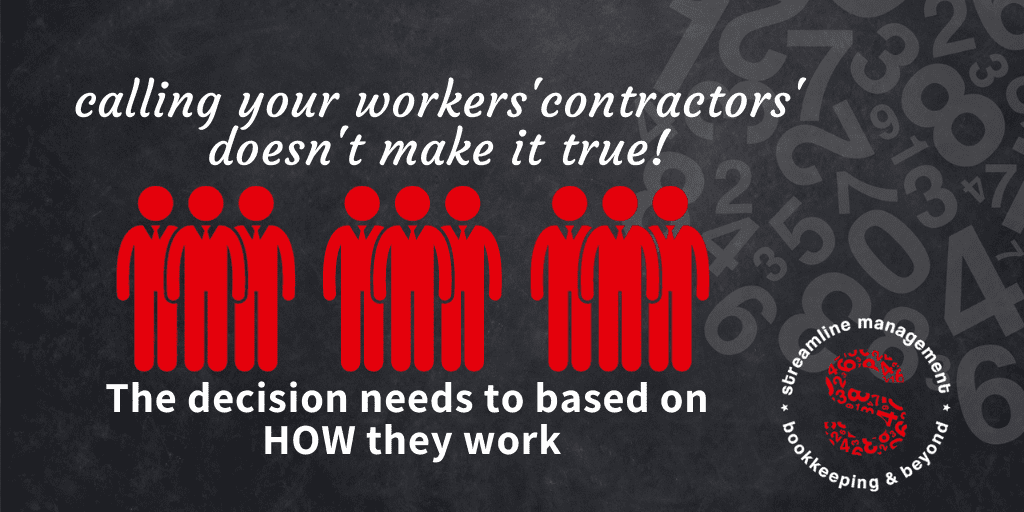So you are trying to save money/headaches/risk by hiring contractors, rather than employees. Make sure you don’t accidentally create more risk for yourself.
We’ve googled a bunch of info and copy pasted it here and cut the rubbish to make it easy for you to review your situation. Links to source materials can be found at the end.
The ATO is currently considering worker classification risk.
Draft public advice and guidance products were published for consultation on the ATO legal database on 15 December 2022, with the consultation period open until 16 February 2023.
Classifying your worker
The High Court judgments clarify that the totality of the relationship between a worker and an employer consists of the legal rights and obligations arising from the contract between the parties.
You are responsible for classifying your worker for tax and super purposes and you need to get it right. If you make an incorrect decision, you may face penalties.
Super contributions for contractors
If you pay contractors mainly for their labour, they are employees for superannuation guarantee (SG) purposes. You may need to pay super to a fund for them. It doesn’t matter if the contractor has an Australian business number (ABN).
Make super contributions for contractors if you pay them:
– under a verbal or written contract that is mainly for their labour (more than half the dollar value of the contract is for their labour)
– for their personal labour and skills (payment isn’t dependent on achieving a specified result)
– to perform the contract work (work cannot be delegated to someone else).
If you enter into a contract with a company, trust or partnership, you do not have to pay super for the person they employ to do the work.
How much super to pay for contractors
The minimum super you must pay is the super guarantee percentage of the worker’s ordinary time earnings. This is the labour component of the contract.
Do not include:
– any contract payments that are for material and equipment
– overtime for which the worker was paid overtime rates
– GST
Paying an additional amount equal to the SG rate to the contractor on top of their usual pay does not count as a super contribution. To avoid the super guarantee charge, you must make the SG contribution to the contractor’s super fund each quarter.
If you are engaging a worker who you believe is a contractor, you can choose to pay them super to ensure you are not liable for the superannuation guarantee charge (SGC). You will need to pay any super contributions directly to their chosen superannuation fund and should include this in your contract with the worker.
What happens if you don’t pay super when you should have?
Avoiding your super obligations through arrangements
If you make arrangements to avoid super guarantee obligations, you may incur the charge you avoided plus an additional penalty. (this might look like classifying someone as a contractor.)
Director penalties
If you are a director of a company, you need to pay the SGC in full by the due date. If you do not, you’ll be liable for a penalty equal to the unpaid amount.
When an SGC amount remains outstanding, we may issue a director penalty notice. Even without issuing a notice, we can collect the penalty by other means. For example, by withholding a tax refund.
Reputable links:
https://www.ato.gov.au/business/employee-or-contractor/how-to-work-it-out–employee-or-contractor/


